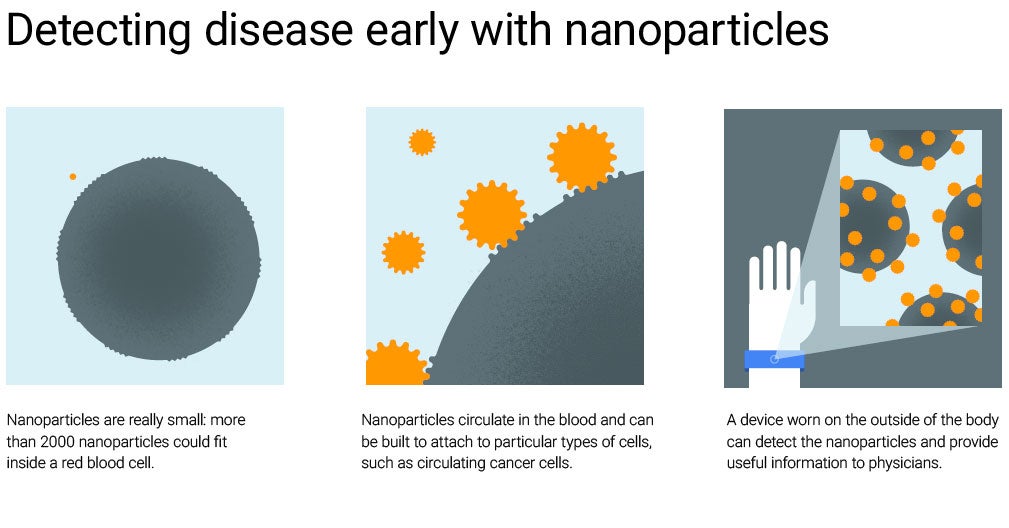Google's next search tool is a pill that spreads through your blood and diagnoses cancer
The company has unveiled plans to create magnetized nanoparticles that home in on makers of disease and alert doctors to developing problems

Your support helps us to tell the story
From reproductive rights to climate change to Big Tech, The Independent is on the ground when the story is developing. Whether it's investigating the financials of Elon Musk's pro-Trump PAC or producing our latest documentary, 'The A Word', which shines a light on the American women fighting for reproductive rights, we know how important it is to parse out the facts from the messaging.
At such a critical moment in US history, we need reporters on the ground. Your donation allows us to keep sending journalists to speak to both sides of the story.
The Independent is trusted by Americans across the entire political spectrum. And unlike many other quality news outlets, we choose not to lock Americans out of our reporting and analysis with paywalls. We believe quality journalism should be available to everyone, paid for by those who can afford it.
Your support makes all the difference.We usually associate taking medicine with recovering from an illness, but in the future swallowing a pill could be the first step to diagnosing diseases from cancer to heart problems.
This is according to new plans unveiled by Google to create tiny magnetic nanoparticles one-thousandth the width of a red blood cell that are ‘painted’ with antibodies or proteins and that can home in on early markers of disease.
A wearable sensor of some sort – a wristband for example – would constantly monitor the findings of these particles and issue reports to doctors, giving them “an early heads-up” about potential problems and switching medicine “from reactive to proactive”.
“Because the core of these particles is magnetic, you can call them somewhere,” the project’s lead, Dr Andrew Conrad, told Wired. “These little particles go out and mingle with the people, we call them back to one place, and we ask them: ‘Hey, what did you see? Did you find cancer? Did you see something that looks like a fragile plaque for a heart attack? Did you see too much sodium?”

The project, under development at the company’s research arm Google X, is at an early stage of development, but the company hopes it could revolutionize how we treat diseases like cancer – which are often only diagnosed after physical symptoms have emerged and the illness is untreatable.
It is the latest step in Google’s steady move into the healthcare industry, with the company currently building a contact lens that measures glucose levels for patients with diabetes and recently acquiring a start-up that created a spoon that compensates for tremors in Parkinsons sufferers that make eating difficult.
Google also has significant stakes in Calico, a Californian-based biotech company that wants to address ‘the problem of aging’, and 23andMe, a company that sells personal genome tests.
Dr Conrad, a molecular biologist who developed a widely-used and cheap test for HIV, said that the dream was to carry out “every test you ever go to the doctor for” through the nanoparticle system, with Google licensing the tech to other companies – not collecting the information itself.
"These are not consumer devices,” he said. “They are prescriptive medical devices, and you know that doctor-patient relationships are pretty privileged and would not involve Google in any way."
Join our commenting forum
Join thought-provoking conversations, follow other Independent readers and see their replies
Comments